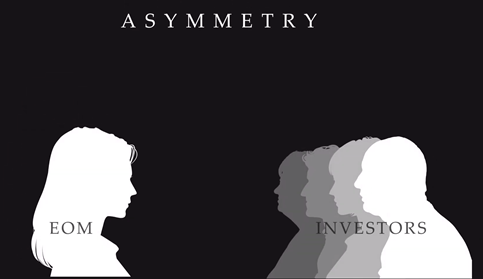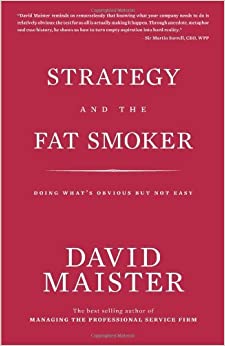1.25 minute read
Out Islands, Bahamas
Do you love the enterprise you have built and are leading? Do you find that it’s intricately interwoven with your personal sense of purpose? With your identity? Is it important to your sense of meaning in the world? Is it part of your personal narrative? And what about when it’s the right time for you to consider what is in your “next chapter”? To consider taking some of the Enterprise Value you have worked so hard to build and put it in a less risky position? Then to consider capturing some of that Enterprise Value and selling your business, you must adopt a new mindset: you must behave like a Buyer.
Few high-performing Entrepreneur Owner-Managers experience the private transaction market more than once. They are unaware of the abundance—no, the superabundance-- of capital in our world today. They are unaware that there are literally thousands and thousands of potential investors worldwide who have discovered that the private company market is the best place to allocate capital. This superabundance of capital combined with EOM’s superior performing niche enterprise means that when they want to capture a capital gain, they must behave as the Buyer.
In plain English, When We Want to Sell Our Business, We Must Be the Buyer.
Huh?
The task isn’t “selling” your business to someone. I mean, you really want to “sell” an uninformed investor how realistic your forward plan is? To defend why your addbacks to EBITDA are justified? To fold on how you’re willing to adapt to their new business plan? Who wants to do that? The best fit and most intelligent investors don’t find value in that.
The actual challenge is to find the best fit new majority investor in the world for your unique, highly valuable enterprise. Then you ask them to show you—to prove to you— why they deserve the opportunity to be an investor in your enterprise. Behaving like a Buyer means you have certain requirements of a new investor to contribute to the future long-term sustained success of the business, and you won’t settle for less. The new investor must be intelligent. Love your enterprise’s culture. That they want to enthusiastically support your management team and their 3-5 year go-forward plan that positively transforms the enterprise. That they are willing to look at that future value and collaborate with you on what they should pay for that opportunity, aware that they are in a competitive environment, that naturally you have multiple alternatives, they must set forth their best economics, terms, and conditions in a win-win structure.
See, as a high-performing EOM business owner, you don’t have to do anything. The investor is the one that is compelled to do something. They must invest, or they have to go home. It’s simple really: if they don’t invest, they don’t get paid, and they won’t be able to raise their next fund.
Since you lead the business like you will own it forever, you are not desperate to sell. In fact, the worst thing that could happen is merely that you earn a few more years of high profit while you find the best fit investor who appreciates what you’ve built. When that happens, it results in an inherently win-win positive sum relationship, right? From the new investor’s view, they end up with majority ownership in a superior performing niche business that they could not have built to this point like you did.
This is why when we meet new EOM friends who are considering becoming Bigelow clients, we ask them to ban the phrase “sell the business” from their vocabulary. This is not merely semantics, or just words. It’s a whole change in mindset that changes your behavior. We aren’t “selling” anybody on anything. We’re trying to find the best fit new majority investor, and boy are we ever going to be highly selective. (Experience tells us that the best ones by the way, probably already have it in their plans to invest in a business like ours. We are merely fueling their preexisting desire).
Capital is a commodity. We can rent it for about the same price from just about anyone.
It’s what you our EOM friends have—a high performing differentiated enterprise in a defensible niche—that is rare and valuable.
It takes a new mindset. We are not “selling” the business. We are “acquiring” a new majority investor. That’s why we must behave like a Buyer. We are one.
If this topic resonated with you, you may also like the video we created related to this topic titles “Seller Beware” found here
What I am Reading / Listening to
Strategy and the Fat Smoker: Doing What’s Obvious But Not Easy (2008)
By David Maister
We often (or even usually) know what we should be doing in both personal and professional life. We also know why we should be doing it and (often) how to do it. Figuring all that out is not too difficult. What is very hard is actually doing what you know to be good for you in the long-run, in spite of short-run temptations. The same is true for organizations. However, just because something is obvious does not make it easy. Real strategy lies not in figuring out what to do, but in devising ways to ensure that, compared to others, we actually do more of what everybody knows they should do. This simple insight, if accepted, has profound implications for how organizations should think about strategy, client relations, and management. Maister shows us how individuals, managers and organizations can overcome the temptations of the short-term and actually do what they already know is good for them.
Entrepreneur Owner-Manager Quote
"I can’t imagine a private company owner using anyone but Bigelow to advise them. It was an incredible journey, and you have all become true friends. Thank you for the freedom you have provided for me, my family, and our Company."
-Hali Dearborn, Former Owner & VP of Corporate Responsibility of EPTAM Plastics, Ltd.
© 2024 Bigelow LLC. All rights reserved.



